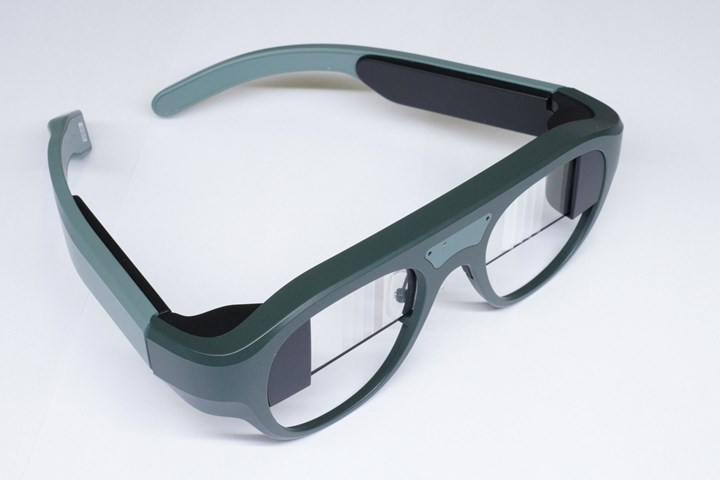PEI Used in Lightweight Augmented Reality Eyeglasses
SABIC’s Ultem 1000 molded by Beijing LLVision Technology for the temples of their AR eyeglasses which display voice translations in text on the lenses in real time.

Augmented reality (AR) eyeglasses for hearing loss compensation and spoken language translation from Beijing LLVision Technology Co., Ltd., branded Leion Hey, feature legs (or temples) molded from SABIC’s tough, lightweight, and inherently halogen-free flame retardant Ultem 1000 PEI.
The Ultem PEI enables thin-wall molding of the hollow legs, which contain both a lithium-ion battery and a computer chip to enable rapid, multi-language translations. The material helped LLVision minimize the weight of the legs to give users all-day comfort, while providing high strength that enables key components to be integrated into the legs with maximum functionality.
Said LLVision’s CEO Wu Fei, “At the beginning of the design phase, we set a goal to make the lightest AR glasses on the market. Every gram mattered to the comfort of our customers. However, with all the components required for AR glasses, including the optical module, microphone and computer chip, it was a difficult challenge. After comparing and testing materials from more than 20 suppliers globally, we found SABIC’s Ultem resin to be the lightest, with additional advantages of strength, resilience and inherent, non-halogenated flame retardance. With the help of Ultem, we lowered the overall weight of our Leion Hey glasses to just 79 grams, or 2.8 ounces.”
Related Content
-
Melt Flow Rate Testing–Part 1
Though often criticized, MFR is a very good gauge of the relative average molecular weight of the polymer. Since molecular weight (MW) is the driving force behind performance in polymers, it turns out to be a very useful number.
-
How Do You Like Your Acetal: Homopolymer or Copolymer?
Acetal materials have been a commercial option for more than 50 years.
-
The Fantasy and Reality of Raw Material Shelf Life: Part 1
Is a two-year-old hygroscopic resin kept in its original packaging still useful? Let’s try to answer that question and clear up some misconceptions.
 (2).jpg;maxWidth=970;quality=90)












